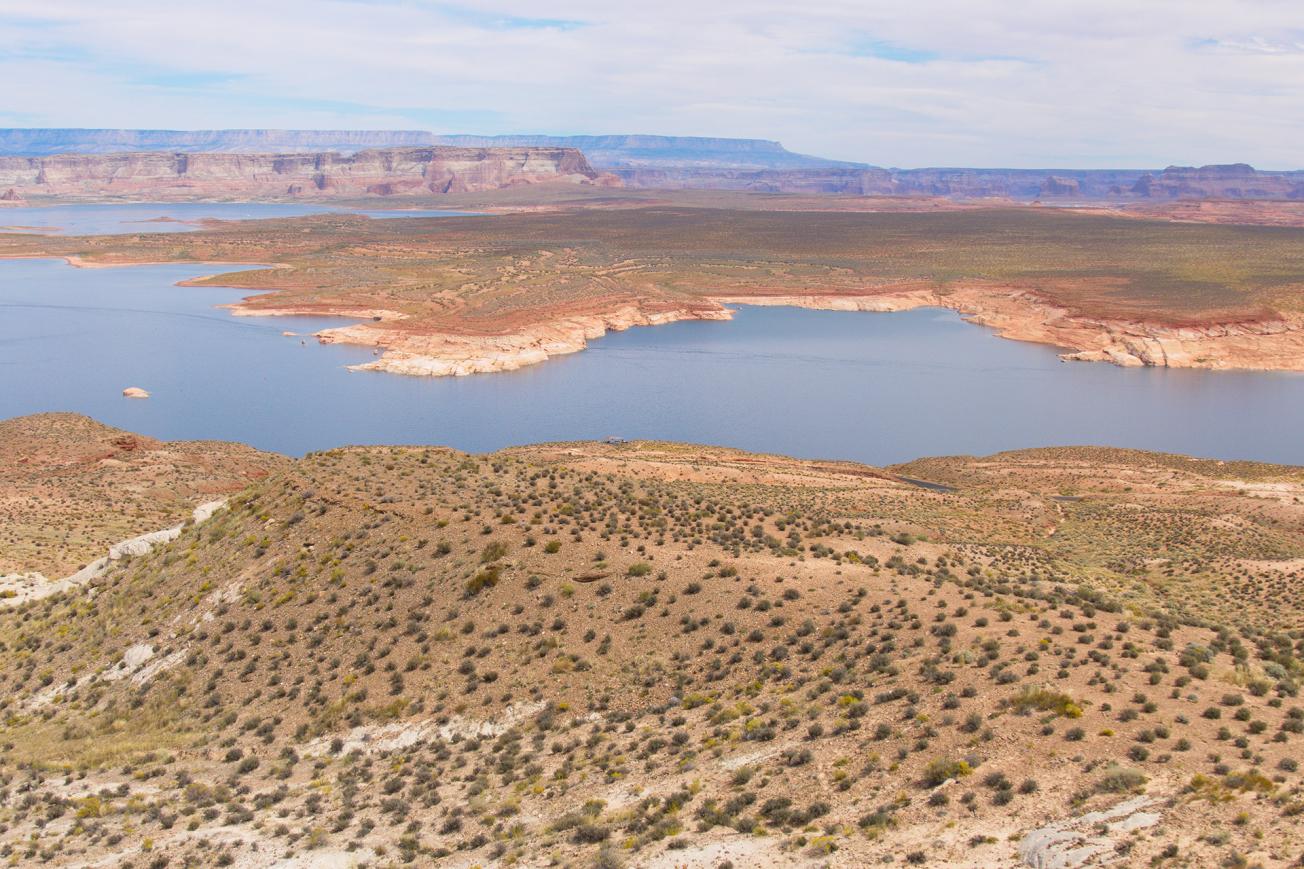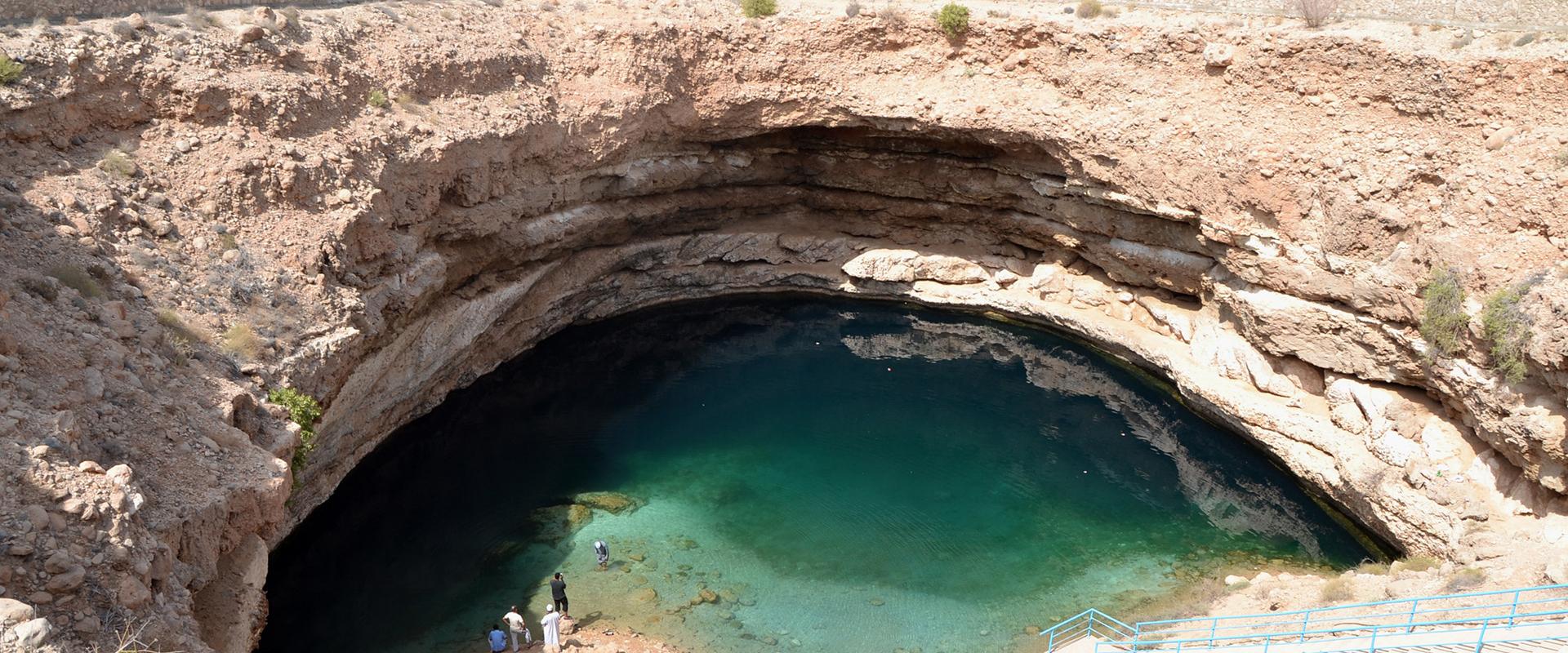
The light-coloured area on the shores of Lake Powell (United States), above the water line, shows the dramatic drop in the water level of a reservoir that supplies 40 million people in seven states.
© BRGM - Patrice Christmann
Against the backdrop of global climate change, protecting and managing water resources is a major challenge, both nationally and internationally. BRGM is conducting various research projects and developing new tools to better understand how aquifers function in order to ensure the sustainable management of water. The aim is to protect water resources and control their use.
Ultimately, this includes anticipating droughts and floods.
Scientific publications
Amraoui, N., Sbai, M. A., & Stollsteiner, P. (2019). Assessment of climate change impacts on water resources in the Somme river basin (France). Water Resources Management, 33(6), 2073-2092. doi:10.1007/s11269-019-02230-x
Cary, L., Petelet-Giraud, E., Bertrand, G., Kloppmann, W., Aquilina, L., Martins, V.,... Team. (2015). Origins and processes of groundwater salinization in the urban coastal aquifers of Recife (Pernambuco, Brazil): A multi-isotope approach. Science of the Total Environment, 530, 411-429. doi:10.1016/j.scitotenv.2015.05.015
Cattan, P., Charlier, J., Clostre, F., Letourmy, P., Arnaud, L., Gresser, J., & Jannoyer, M. (2019). A conceptual model of organochlorine fate from a combined analysis of spatial and mid-to long-term trends of surface and ground water contamination in tropical areas (FWI). Hydrology and Earth System Sciences, 23(2), 691-709. doi:10.5194/hess-23-691-2019
Guiheneuf, N., Bour, O., Boisson, A., Le Borgne, T., Becker, M. W., Nigon, B.,... Marechal, J. -. (2017). Insights about transport mechanisms and fracture flow channeling from multi-scale observations of tracer dispersion in shallow fractured crystalline rock. Journal of Contaminant Hydrology, 206, 18-33. doi:10.1016/j.jconhyd.2017.09.003
Habets, F., Molenat, J., Carluer, N., Douez, O., & Leenhardt, D. (2018). The cumulative impacts of small reservoirs on hydrology: A review. Science of the Total Environment, 643, 850-867. doi:10.1016/j.scitotenv.2018.06.188
Hérivaux C., Grémont M. (2019): Valuing a diversity of ecosystem services: The way forward to protect strategic groundwater resources for the future?, Journal Ecosystem Services, Vol 35, pp 184-193.
Lopez, B., Baran, N., & Bourgine, B. (2015). An innovative procedure to assess multi-scale temporal trends in groundwater quality: Example of the nitrate in the seine-normandy basin, france. Journal of Hydrology, 522, 1-10. doi:10.1016/j.jhydrol.2014.12.002
Negev, I., Guttman, J., & Kloppmann, W. (2017). The use of stable water isotopes as tracers in soil aquifer treatment (SAT) and in regional water systems. Water, 9(2), 73. doi:10.3390/w9020073
Petit O., Kuper M., Lopez-Gunn E., Rinaudo J-D. (2017) : Can agricultural groundwater economies collapse ? An inquiry to the pathways of four groundwater economies under threat. Hydrogeology journal 25(6) : 1549-1564.
Rinaudo, J., & Donoso, G. (2019). State, market or community failure? untangling the determinants of groundwater depletion in Copiapo (Chile). International Journal of Water Resources Development, 35(2), 283-303. doi:10.1080/07900627.2017.1417116
Vergnes, J., & Habets, F. (2018). Impact of river water levels on the simulation of stream-aquifer exchanges over the upper rhine alluvial aquifer (France/Germany). Hydrogeology Journal, 26(7), 2443-2457. doi:10.1007/s10040-018-1788-0
Vittecoq B., Reninger P-A., Lacquement F., Martelet G., Violette S. (2019) : Hydrogeological conceptual model of andesitic watersheds revealed by high-resolution geophysics, Hydrol. Earth Syst. Sci., 23, 2321-2338, doi:10.5194/hess-23-2321-2019, doi:10.5194/hess-23-2321-2019, 2019







